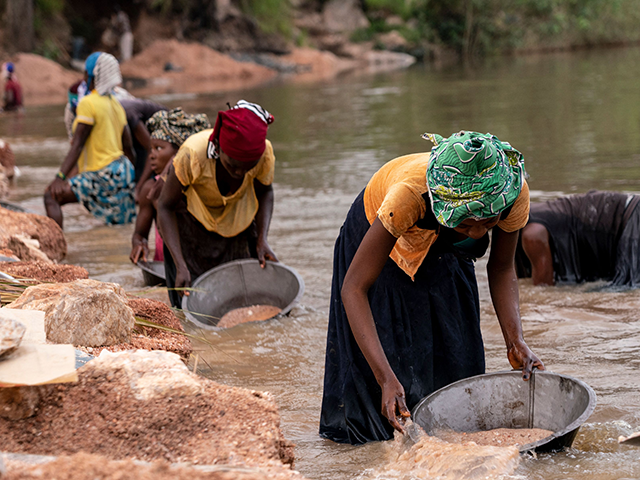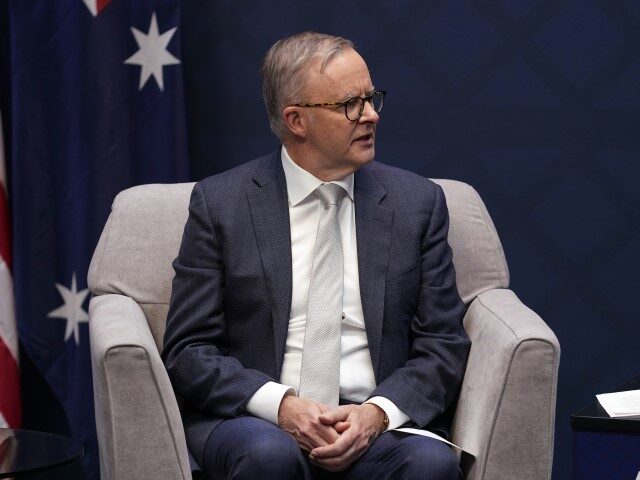Multiple ministers in the government of Australia expressed this week an interest in expanding exports of lithium to India, particularly in response to concerns that America has become too lucrative a market for exports and may corner lithium supplies.
Lithium is a key mineral in the manufacture of electric vehicle and other batteries necessary for the development of a “green” economy away from fossil fuels. Australia is the world’s largest producer of lithium, considerably above the production of Chile and China, the second and third most productive lithium mining countries in the world. Australia’s abundant lithium supply is not matched by refining and other manufacturing capacity, meaning it largely exports lithium to the United States and China, the latter of which currently dominates the manufacture of lithium batteries. Given its prominence as the top lithium battery maker in the world, the Chinese Communist Party has invested heavily in buying up mines and processing facilities in Chile and Australia, as well as other potentially large suppliers in Africa, primarily Zimbabwe.
The government of left-wing Australian Prime Minister Anthony Albanese, discussing Australia’s lithium trade, expressed far more concern with America becoming too attractive a market for its lithium exports in the near future than with China’s potential dominance in the sector. The Indian newspaper the Hindu reported on Friday that Trade and Tourism Minister Don Farrell, speaking to reporters, said his government was concerned that the “Inflation Reduction Act,” a Democrat-led law passed last year to greatly increase government funding for “green” initiatives, would lead to most Australian lithium ending up in the United States.

Artisanal miners collect gravel from the Lukushi river searching for cassiterite on February 17, 2022 in Manono, the Democratic Republic of Congo. The inhabitants of Manono, most of whom are artisanal diggers, place their hope in the investment of the Australian company AVZ minerals which plans to invest 600 million dollars in lithium mining. (JUNIOR KANNAH/AFP via Getty Images)
The “Inflation Reduction Act” included a provision that requires at least 40 percent of lithium imported for battery manufacture to come from countries that have a free trade agreement with America, which includes Australia.
“There are very few countries with both an FTA [Free Trade Agreement] and the largest reserves and we are one of them. So we see great opportunity for Australia,” Farrell told reporters, according to the Hindu. “What we don’t want to see is all of those critical minerals gathered up and headed to the United States.”
Farrell reportedly suggested that India would be a desirable destination for Australian lithium to ensure a variety of purchasers.
“We give you the opportunity of investing in our country. India is building an electric vehicles industry and Australia would like to be part of it,” he said.
The Australian government appeared to be responding to pressure from its domestic lithium corporations, who see America as a “threat” because its market is too comparatively favorable to other countries – and it may discourage Australians seeking to establish lithium refining plants from doing so at home.
“The new policy environment [in the US] creates both an opportunity and threat to Australia’s downstream ambitions,” Mineral Resources, a top Australian lithium producer, said in a letter to the Albanese administration this week.
The letter continued:
The fact that prior to the IRA [Inflation Reduction Act], the US was already one of the world’s most competitive manufacturing economies – and Australia was one of the world’s least – means it will now be more challenging for Australia to move much further down the lithium-ion value chain and for Australian companies to convince overseas joint venture partners and investors to invest in Australia.
“The IRA will also incentivise US companies to invest in Australian mines as means to secure critical minerals, with the added incentives then offered to building battery chemicals in the US,” the letter reportedly continued. “This has the net effect of creating a significant disincentive for US companies to invest further in battery chemical facilities in Australia.”
The Australian Financial Review reported this week that Mineral Resources (MinRes) urged the government to offer tax and other incentives to lithium battery producers in Australia to keep them home, and to keep American companies from buying up lithium mines in Australia.
“Chris Ellison-led MinRes was in Canberra lobbying Treasury officials on Wednesday as Charlotte-headquartered Albemarle faced the prospect of having to increase its $5.5 billion bid for Liontown [a mining company],” the newspaper reported.
The Hindu noted that Farrell’s comments on Friday followed a meeting in early March between Australian Resources Minister Madeleine King and Indian Mine Minister Pralhad Joshi in which their respective countries agreed to invest in five mineral projects: two lithium and three cobalt initiatives in Australia.
“We want to have a diversity of investments in our critical minerals productions and to ensure we build secure chains for our friends and partners,” King said at the time, “like-minded democracies around the world and even better when it involves a close neighbour like India.”
The early March meetings with Indian officials resulted in Australia agreeing to significant exports of fossil fuels, as well, including coal and natural gas, which King justified as necessary despite environmentalists’ concerns because much of India remains underdeveloped.
“India is one of the countries that need natural resources for its energy security and they need that to ensure that their community can have the same things we have,” the Sydney Morning Herald quoted King as saying, “which is an entitlement to power, safe cooking fuels and all the things we take for granted and don’t much think about.”
India has also expressed an interest in developing its own lithium supplies. In February, the Geological Survey of India (GSI) announced the discovery of significant lithium deposits in the restive northern territory of Jammu and Kashmir.
“In order to become self-reliant, it is very important for the country to find out critical minerals and also process it,” Indian Mines Secretary Vivek Bharadwaj said in announcing the discovery, which is the first of its scale in the country.

COMMENTS
Please let us know if you're having issues with commenting.